First Person
is a regular feature of DePauw Magazine, which is published three times a year.
I grew up in Newton, Massachusetts, a liberal suburb that, of all places, one would think could handle racism right. However, in high school, I didn’t learn about the Chinese Exclusion Act or Japanese internment. I didn’t even know that Asian Americans counted as people of color.
To this day, when meeting people, I brace myself for the detested, “Where are you from?” I’m from Boston. Yet saying this risks a followup, “No, where are you really from?” They want to know that my parents are from Taiwan. But I am from Boston.
I’ve been asked, “Are you adopted?” and “Are you ‘half?’” People’s surprise that I’m not betrays their assumption that fluent English is impossible if one does not have a white person in the immediate family. How do white Americans learn to speak English? By growing up in the United States, immersed in English. Same for me. I have lived in the U.S. my entire life.
Anti-Asian insults and graffiti peppered my time at DePauw. There were so few Asian Americans that the Asian American Pacific Islander Initiative became defunct my junior year. As an overscheduled music student, I wasn’t able to bring it back. And my experience of racism is tame.
I realized that I had to stand up for myself as an Asian American, or else there might not be anyone who could. At DePauw, I miraculously got the chance to learn how to do so. I took professor Eugene Gloria’s Asian American literature course and a poetry workshop with Marilyn Chin, and had an amazing counselor who deeply understood Asian American identity.
After graduating, I connected with the wonderful Asian American mental health community in Boston. People there encouraged me to turn a brewing idea into a reality: DisOrient, my YouTube series on Asian American mental health, neurodiversity and representation (www.emilychenstudio.com/disorient). I hope DisOrient can give my AAPI community language and guidance for our complex experiences, and our allies a glimpse into what we face.
Racism exists. In Greencastle, it was overt, while Newton oppressed through omission. There’s so much to be done, and yet I’m invigorated knowing there’s so much we can do, if we’re brave enough to do it.
To my AAPI family: You are not alone, and there are so many ways to support yourself and our community. Report hate crimes at Stop AAPI Hate (https://stopaapihate.org/). Learn about mental health and AAPI history through DisOrient, PBS’s “Asian Americans” film series and beyond. Seek help when you need it, through DePauw’s Counseling Services or the therapist directories at Asian Mental Health Collective or Psychology Today. Share your stories, even just with supportive friends. Connect with the AAPI community. We can be well, and we can belong.
To my friends who are Black, Indigenous and people of color: I see you. I’m doing my best to listen to your stories and make sure there’s space for you alongside the AAPI community, so we can move in solidarity toward a better world.
To white allies: Acknowledge our existence. Investigate and question your assumptions. Accept what you can’t understand with humility and grace. Make space for us. Listen to our stories. Stand up for us. The work of self-reflection and anti-racism is never comfortable, but it can turn the insidious tide of hate. And who knows? You might be surprised by the AAPI luminaries you find, who make this world a brighter, richer place.
DePauw Magazine
Fall 2021
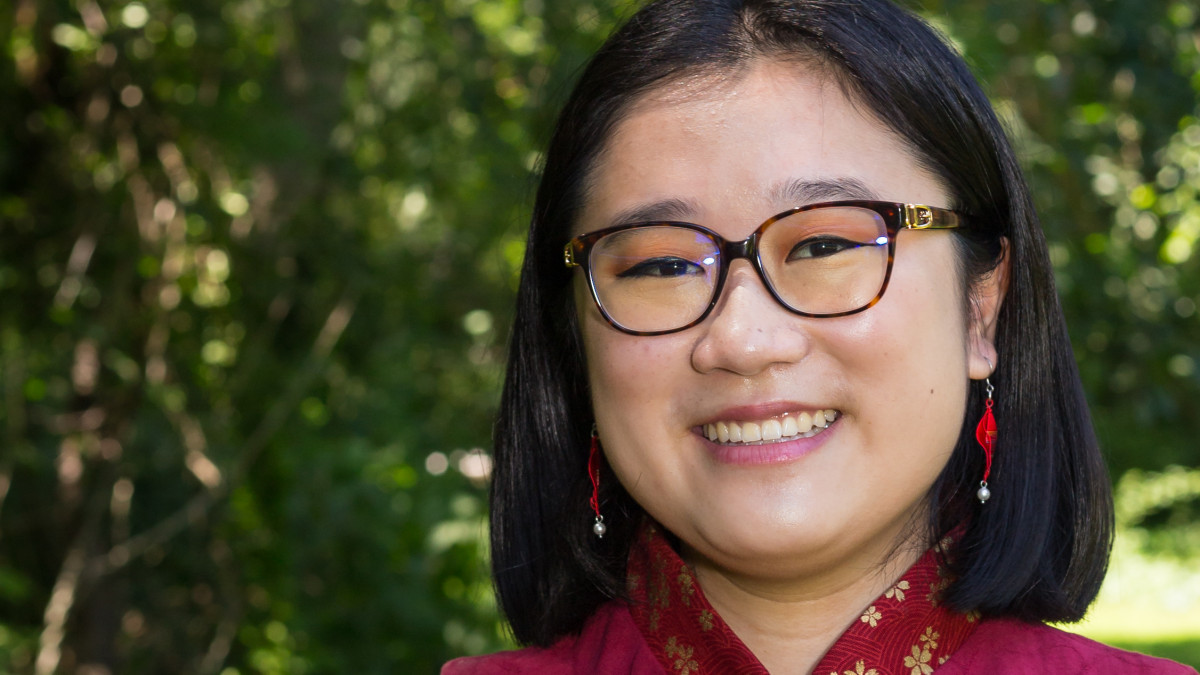 First Person by Emily Chen ’18
First Person by Emily Chen ’18 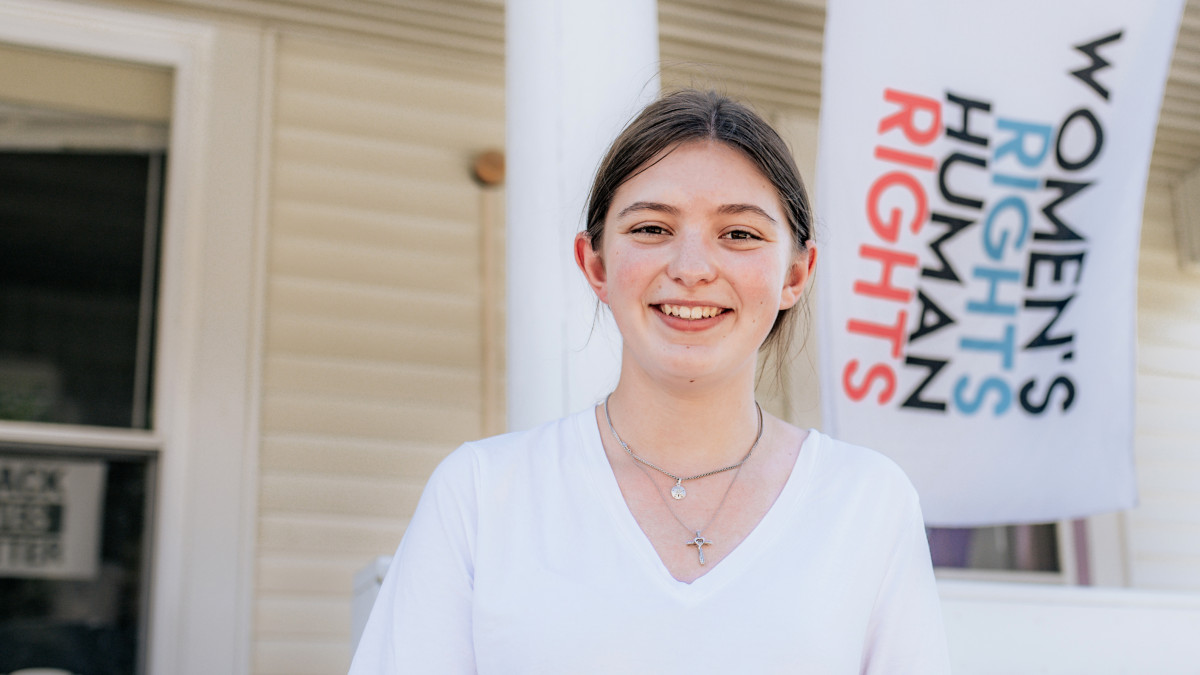 First-year known for follow-through exemplifies DePauw’s outstanding students
First-year known for follow-through exemplifies DePauw’s outstanding students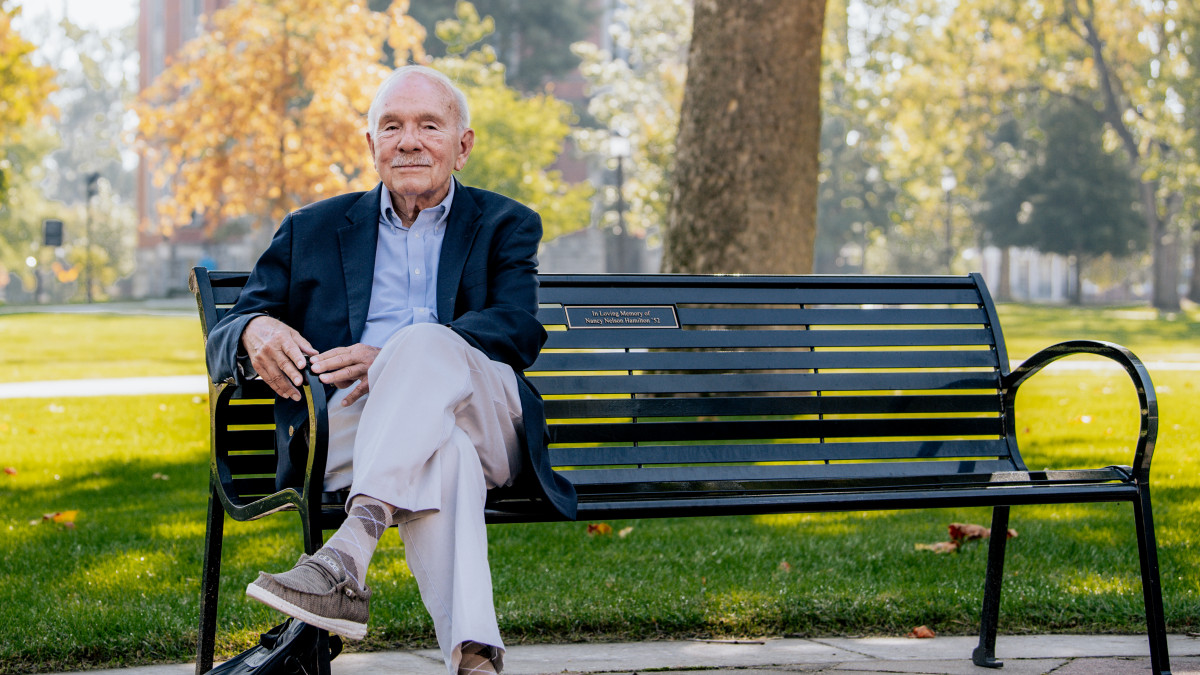 The Bo(u)lder Question by John Dittmer
The Bo(u)lder Question by John Dittmer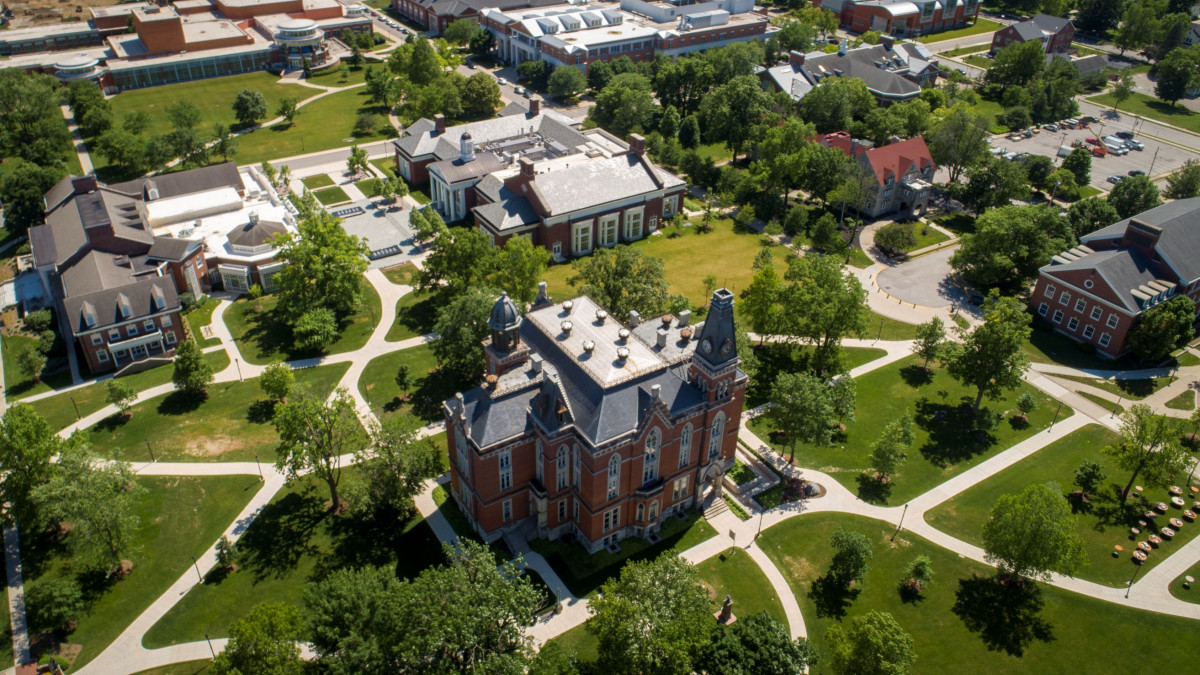 The new VPs: Seeking solutions for admission, alumni
The new VPs: Seeking solutions for admission, alumni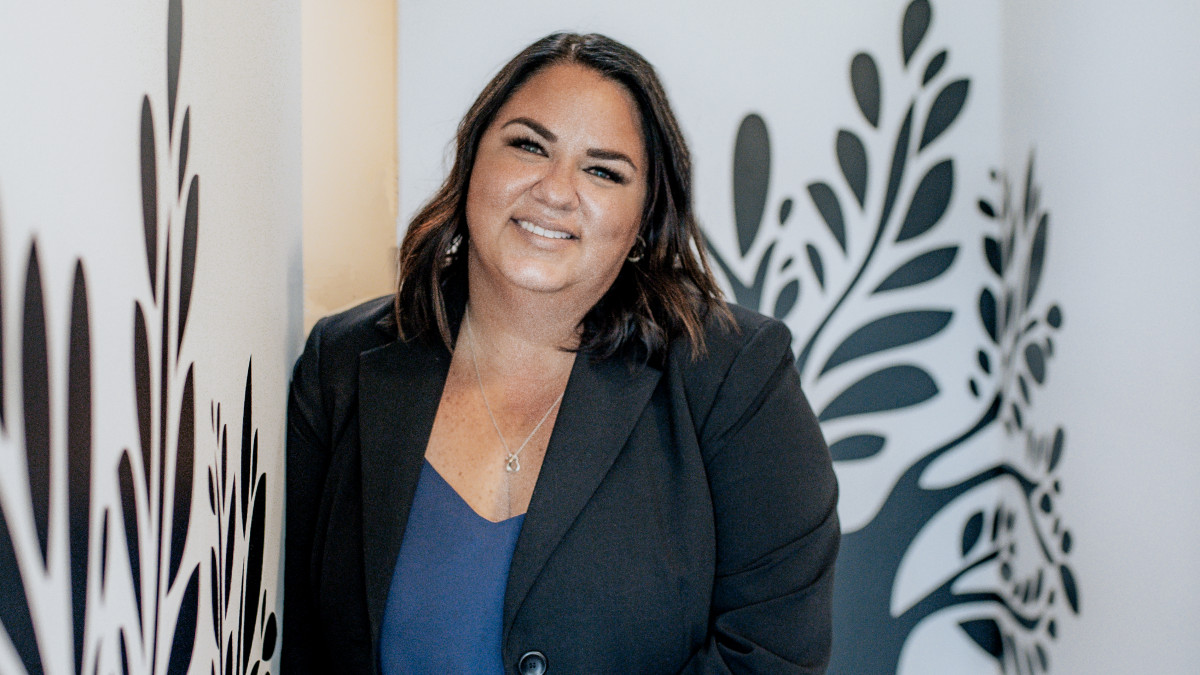 Ashley English ’01: Exhibiting empathy born of experience
Ashley English ’01: Exhibiting empathy born of experience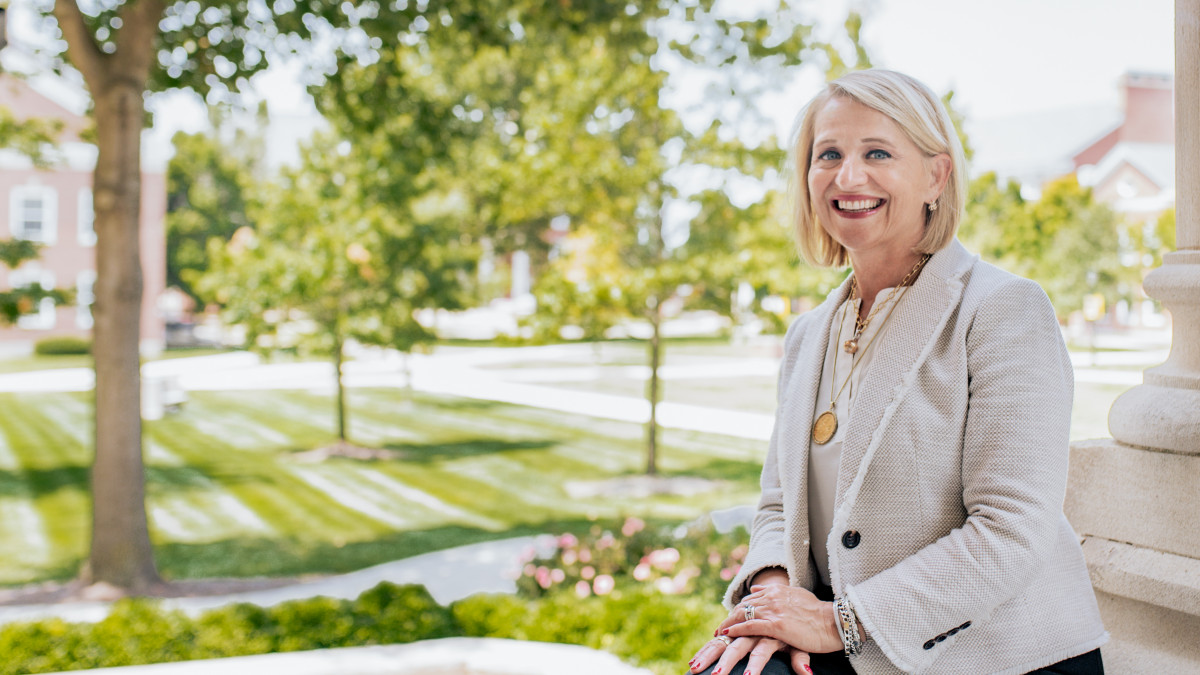 Jennifer Pope Baker ’89: Making noise about quiet problems
Jennifer Pope Baker ’89: Making noise about quiet problems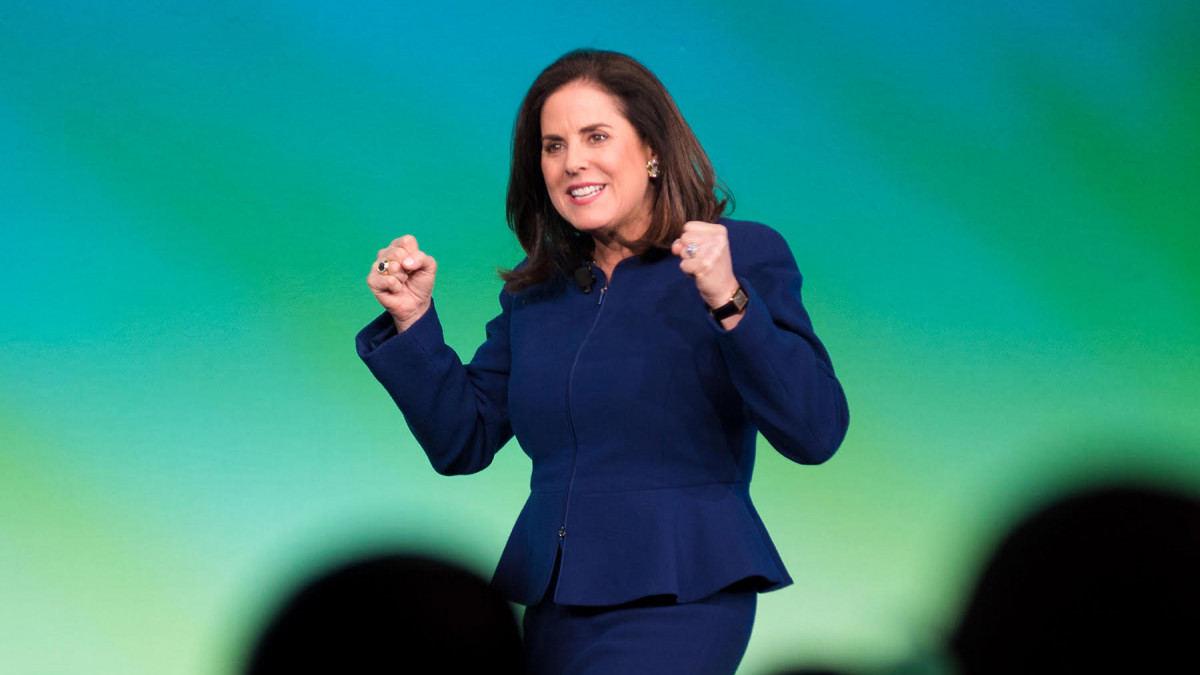 Jan Risi ’81: Transforming a mom-and-pop into a competitor
Jan Risi ’81: Transforming a mom-and-pop into a competitor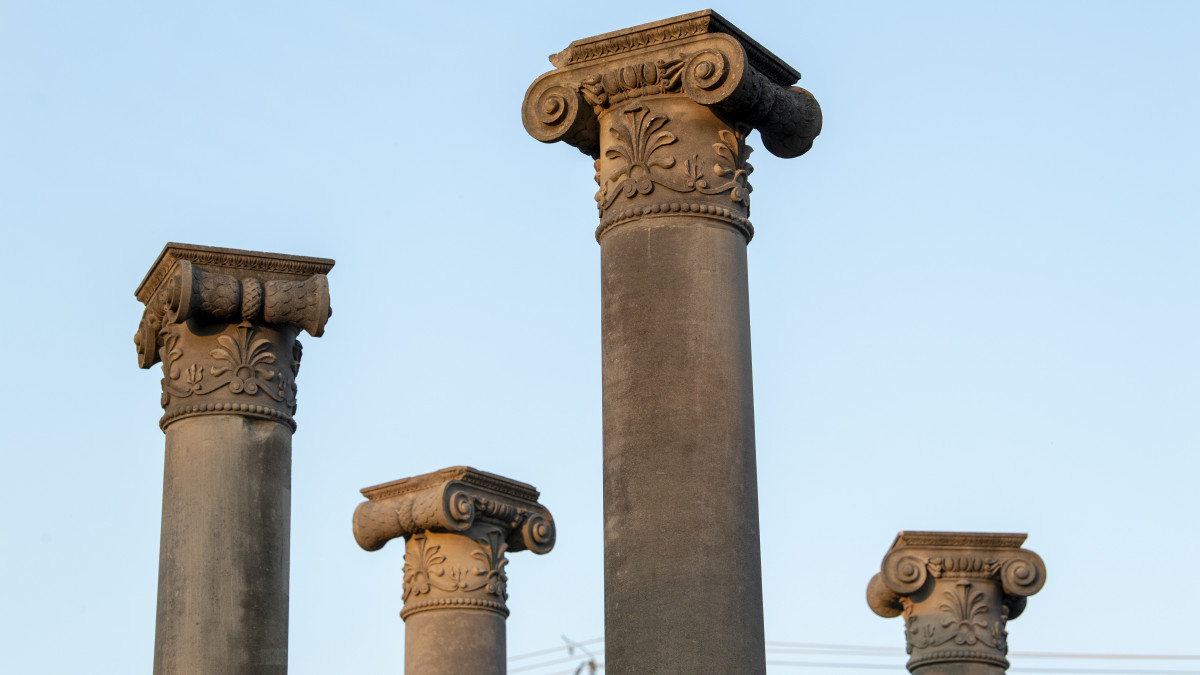 Randy Dwenger ’80: Finding hope for troubled youths
Randy Dwenger ’80: Finding hope for troubled youths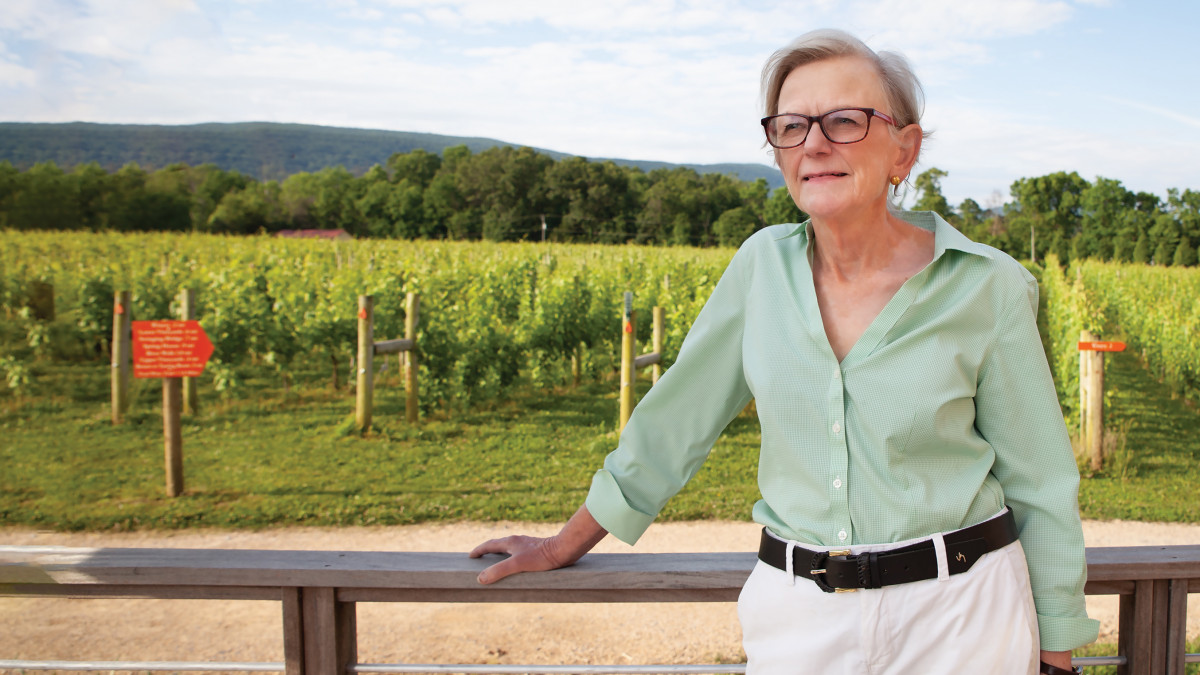 Sally Smerz Grooms Cowal ’66: Healing countries and people around the globe
Sally Smerz Grooms Cowal ’66: Healing countries and people around the globe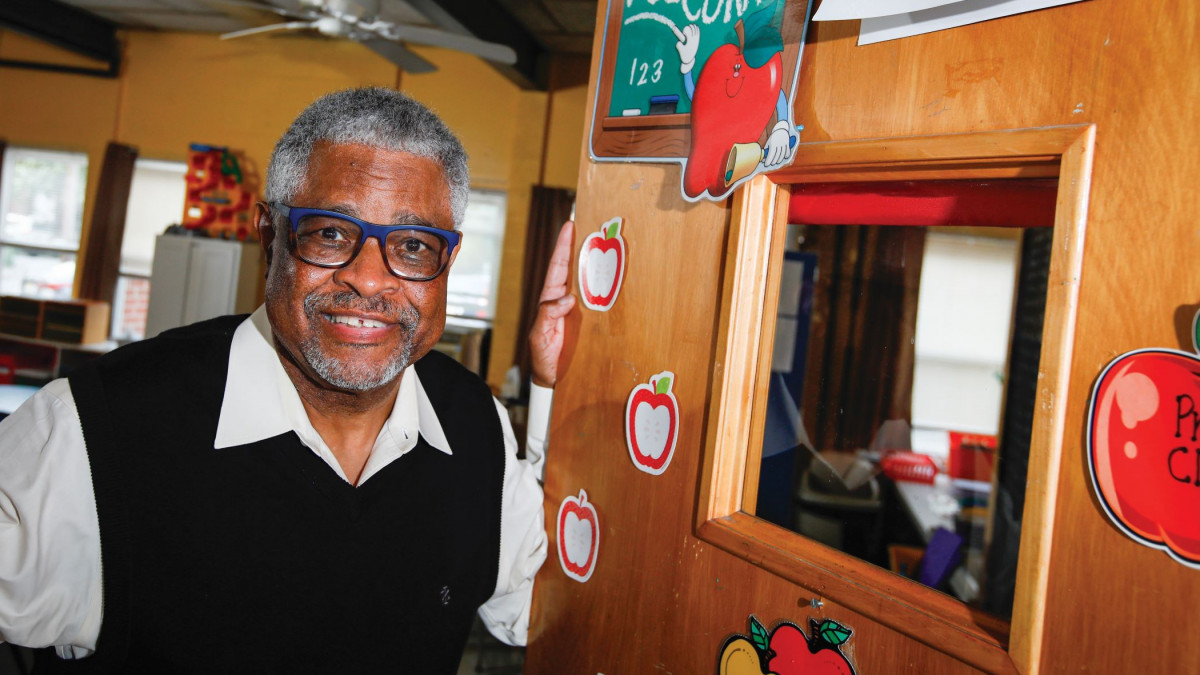 Edward Greene '71: Exploring how children learn
Edward Greene '71: Exploring how children learn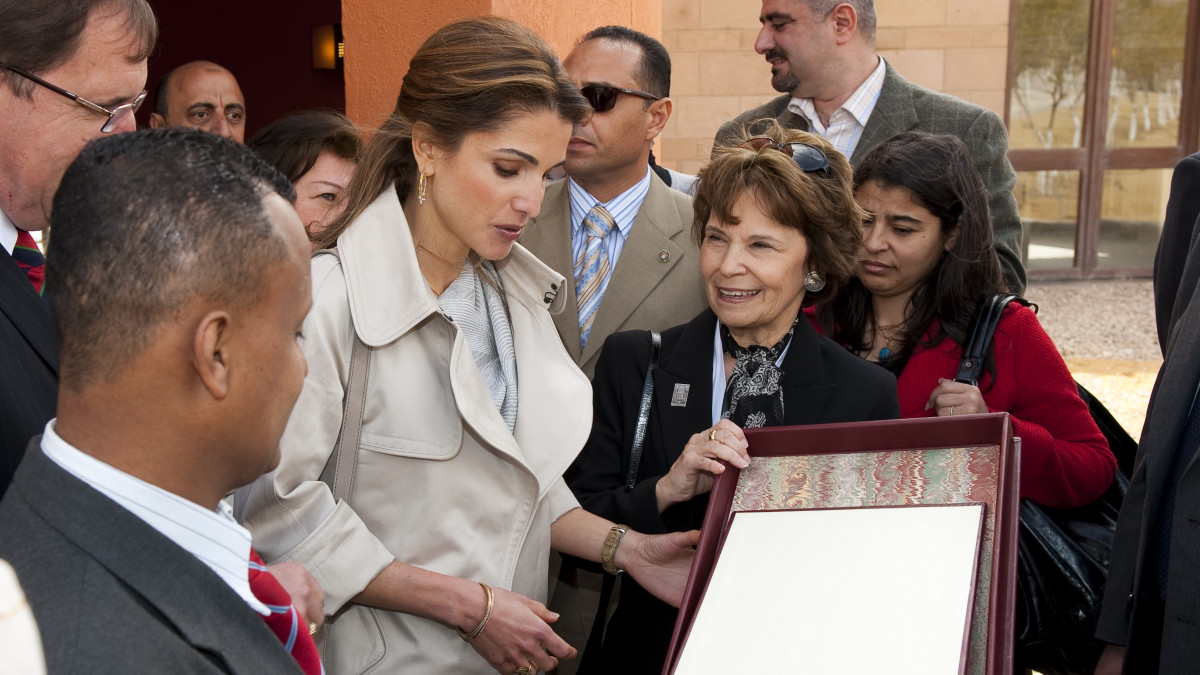 Barbara Lethem Ibrahim '71: Seeking justice in the Mideast
Barbara Lethem Ibrahim '71: Seeking justice in the Mideast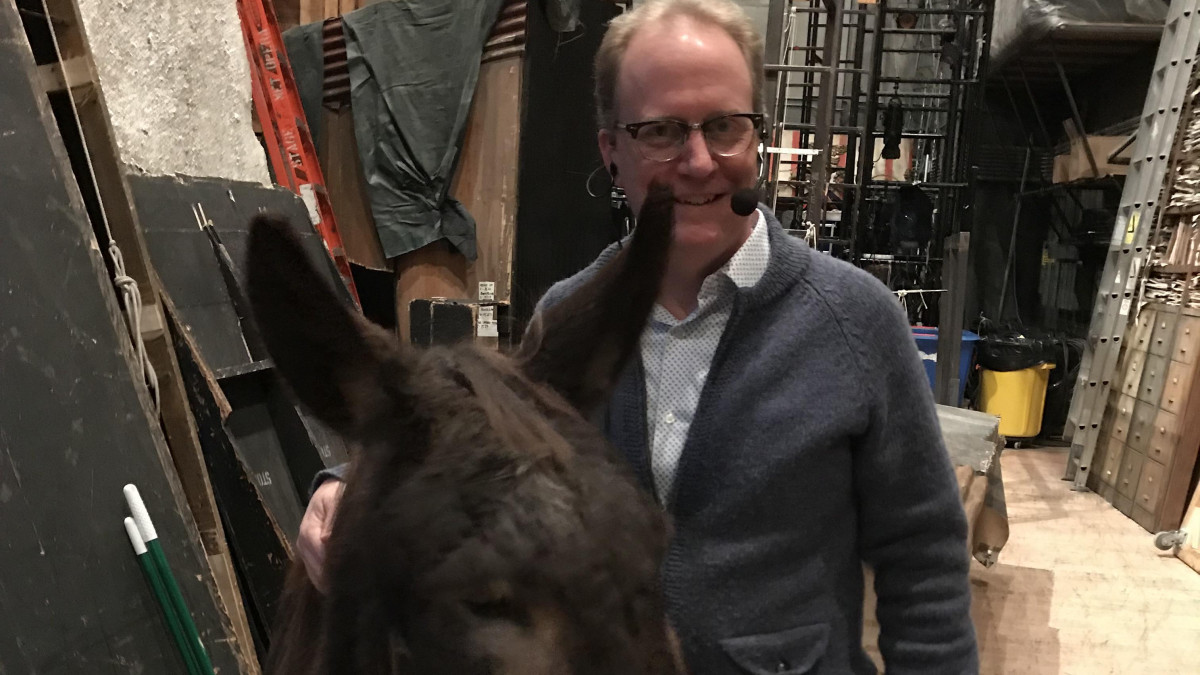 Scott Moon ’83: Staging the stars
Scott Moon ’83: Staging the stars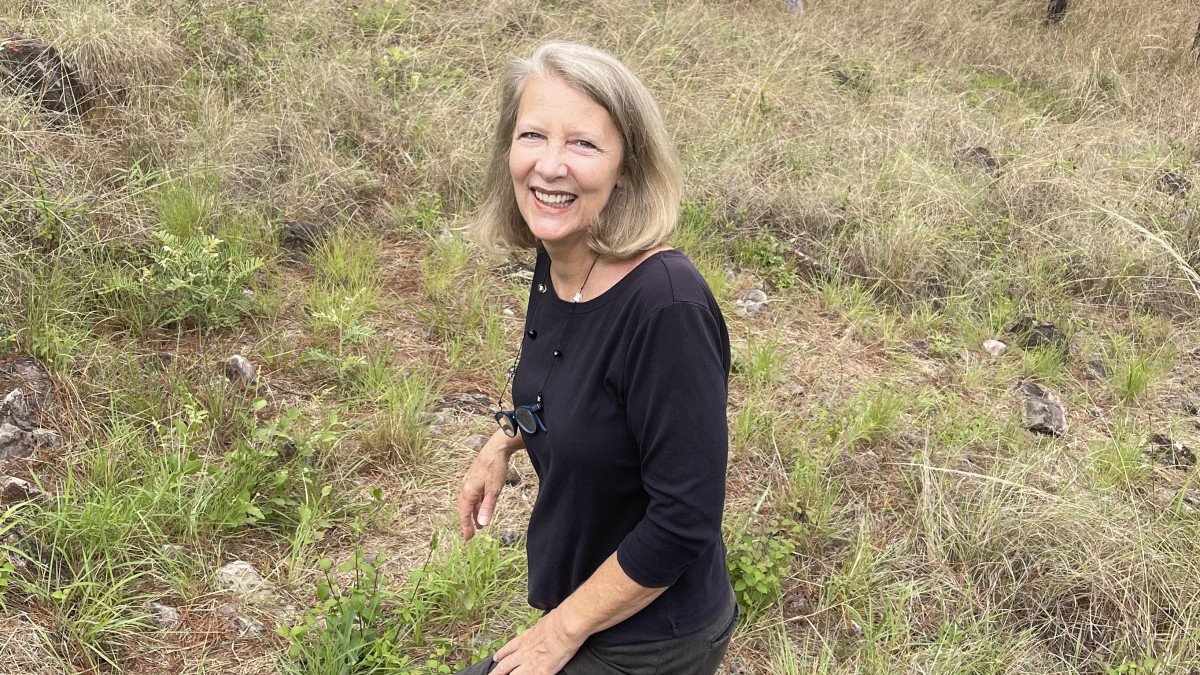 Betsy Hake ’79: Reaching out to outcasts
Betsy Hake ’79: Reaching out to outcasts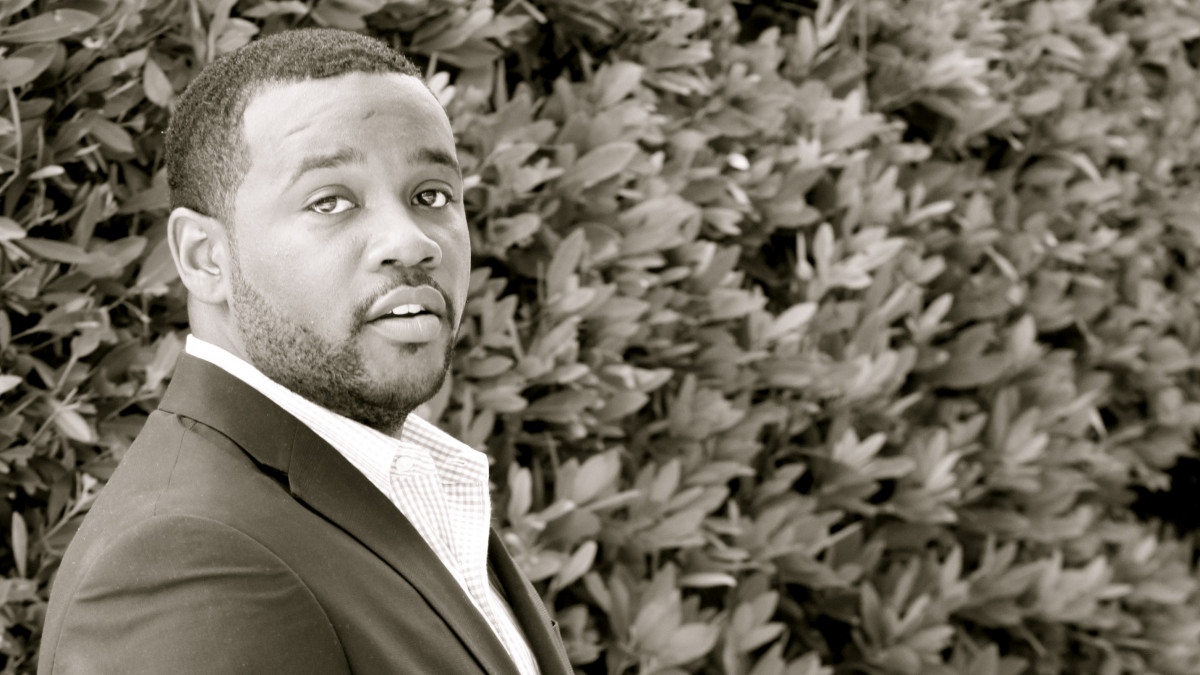 Edward Garnes '99: Serving sweet tea for the troubled mind
Edward Garnes '99: Serving sweet tea for the troubled mind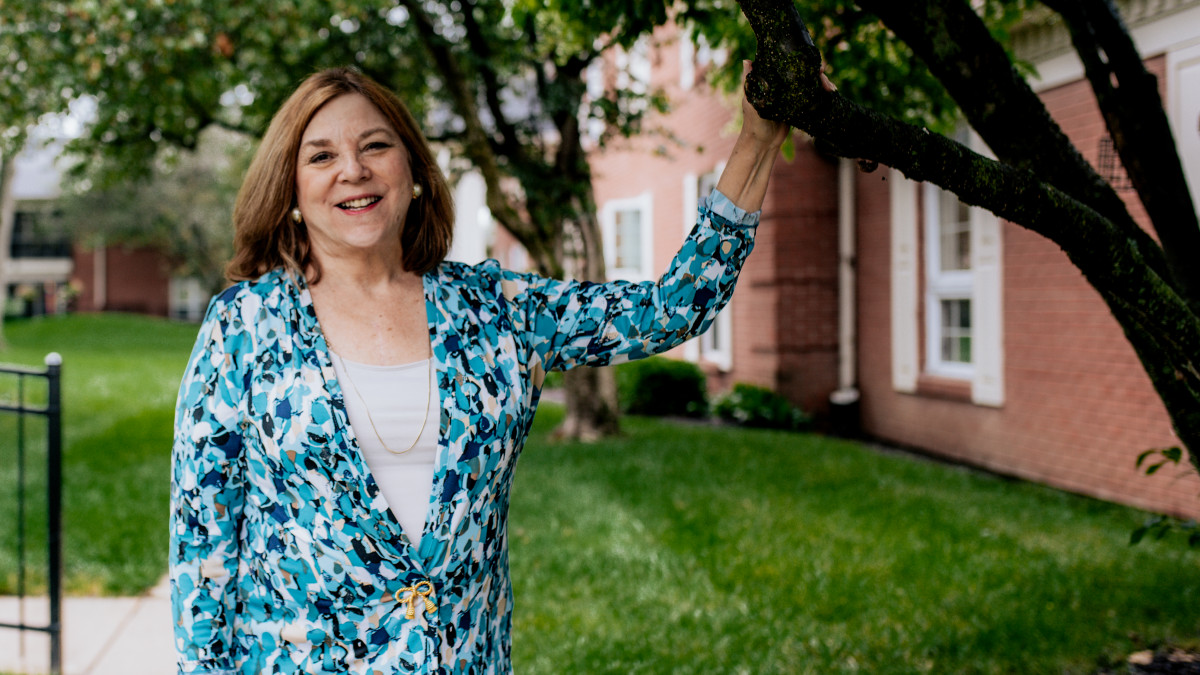 Melissa Martin ’71: Breathing life into small towns
Melissa Martin ’71: Breathing life into small towns The Solution Seekers: Using grit to save one starfish at a time
The Solution Seekers: Using grit to save one starfish at a time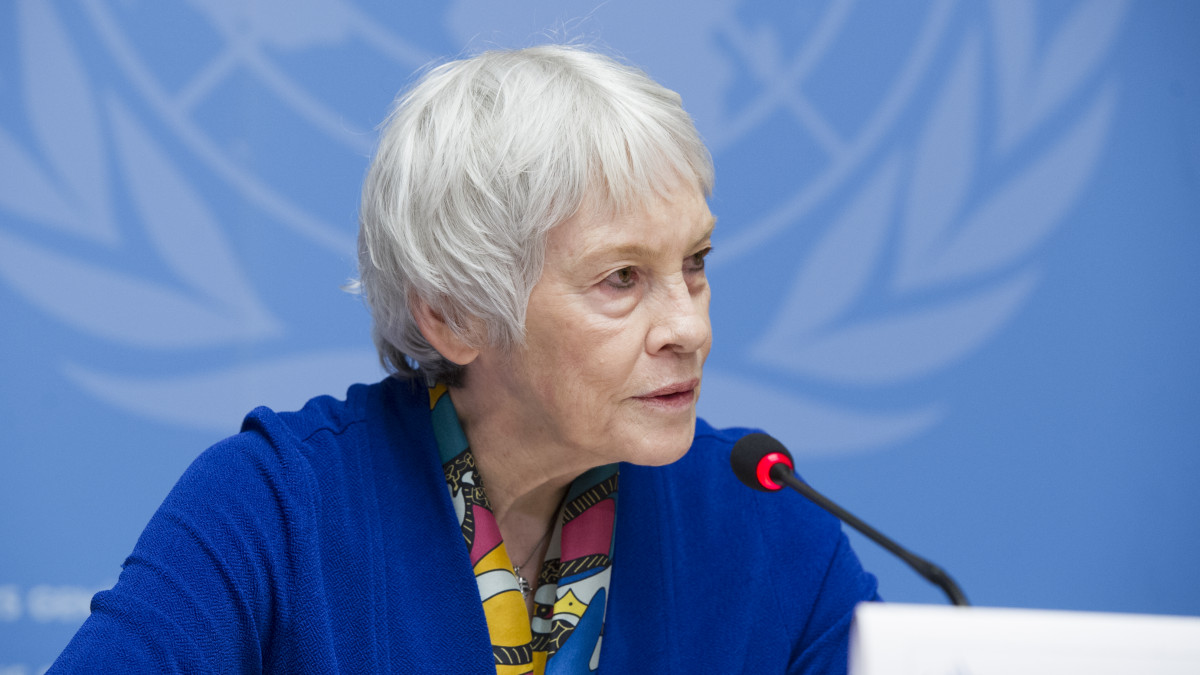 Karen Koning AbuZayd ’63: Rescuing refugees
Karen Koning AbuZayd ’63: Rescuing refugees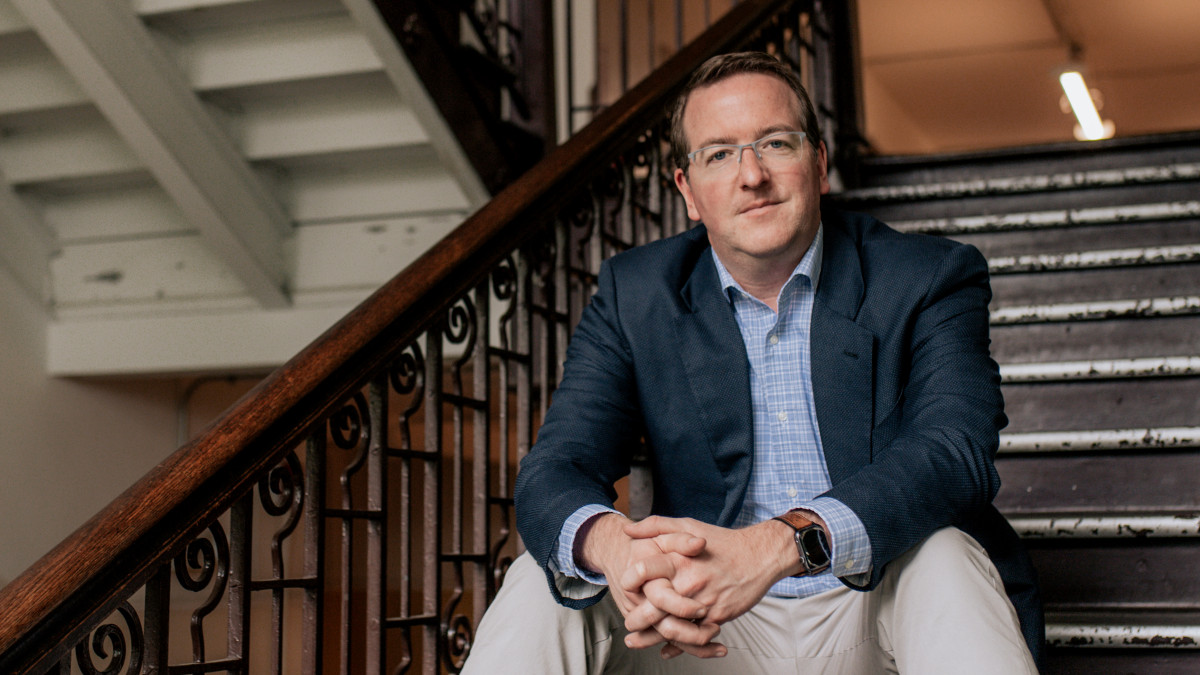 Nathan Hand ’03: Lending help to worthy causes
Nathan Hand ’03: Lending help to worthy causes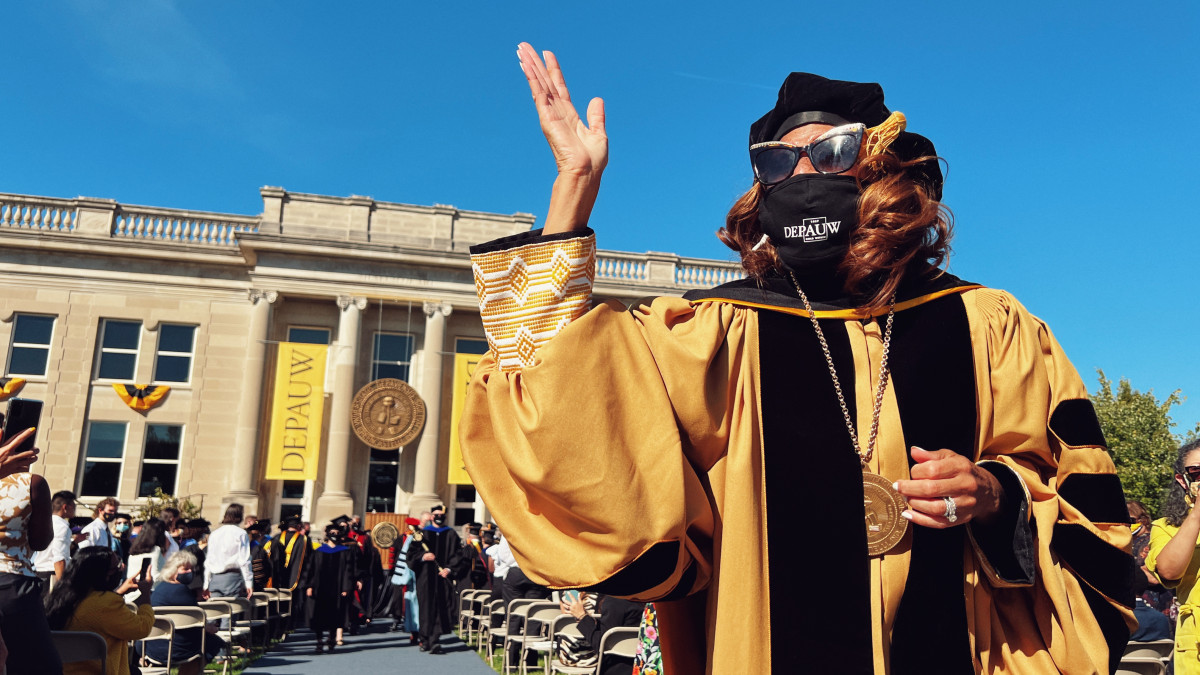 DePauw’s gold shines as White is inaugurated as president
DePauw’s gold shines as White is inaugurated as president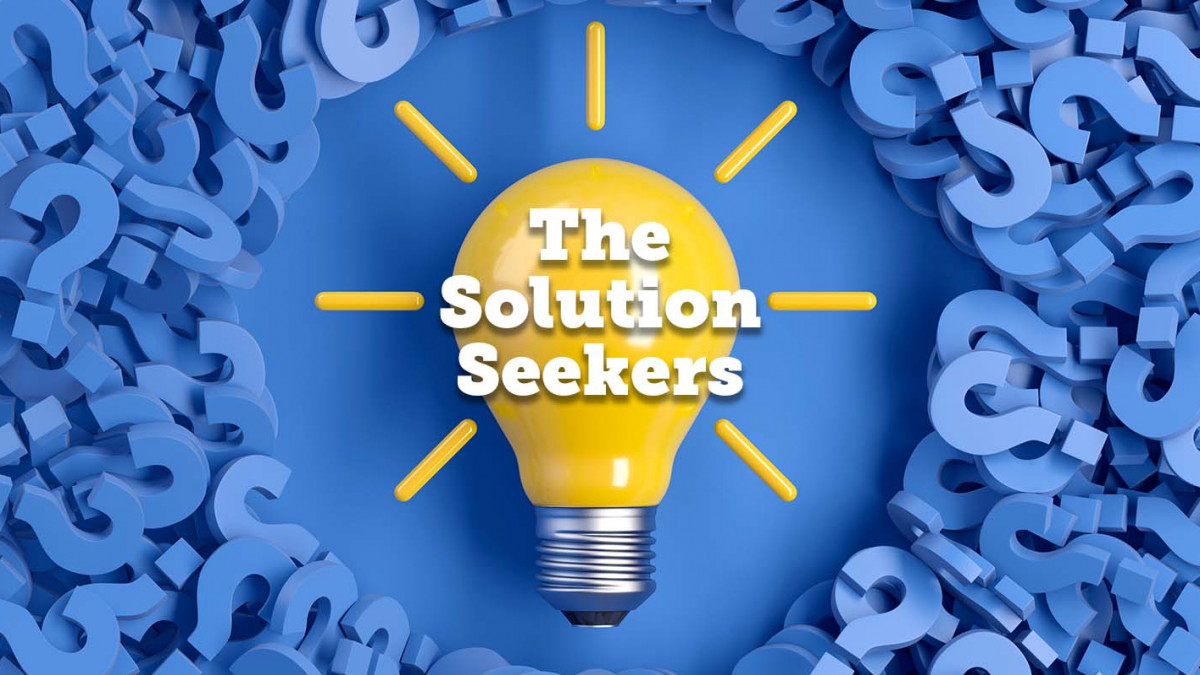 DePauw Magazine: The Solution Seekers
DePauw Magazine: The Solution Seekers
DePauw Stories
A GATHERING PLACE FOR STORYTELLING ABOUT DEPAUW UNIVERSITY
Browse other stories
-
Athletics
-
Field Hockey - Elevated by the Game: Ella Harms’s Field Hockey Journey at DePauw
-
Men's Basketball - Tigers Fall to Little Giants and Split Season Series
-
Football - Robby Ballentine Selected Academic All-America® Team Member of the Year
More Athletics
-
-
News
-
DePauw University Remembers Esteemed President Emeritus Robert G. Bottoms
-
Student and Professor Share Unexpected Writing Journey
-
Four in a Row! DePauw Wins 131st Monon Bell Classic
More News
-
-
People & Profiles
-
Entrepreneurs Eric Fruth ’02 and Matt DeLeon ’02 Are Running More Than a Business
-
Rick Provine Leaves Legacy of Leadership and Creativity
-
History Graduate Cecilia Slane Featured in AHA's Perspectives on History
More People & Profiles
-
-
Have a story idea?
Whether we are writing about the intellectual challenge of our classrooms, a campus life that builds leadership, incredible faculty achievements or the seemingly endless stories of alumni success, we think DePauw has some fun stories to tell.
-
Communications & Marketing
101 E. Seminary St.
Greencastle, IN, 46135-0037
communicate@depauw.eduNews and Media
-
News media: For help with a story, contact:
Bob Weaver, Senior Director of Communications.
bobweaver@depauw.edu.